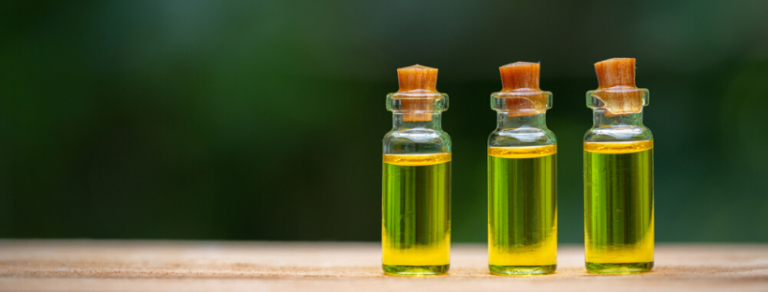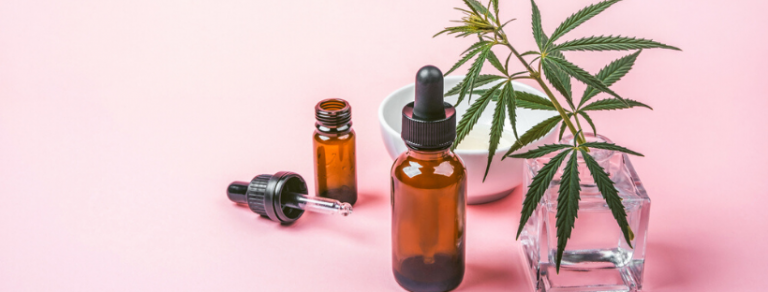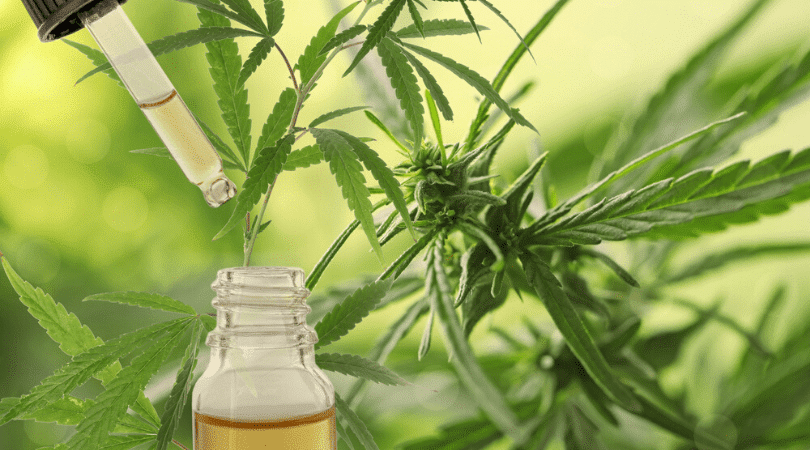CBD is short for cannabidiol, one of the major chemical compounds found in hemp and marijuana. CBD is the three-letter abbreviation for the longer term. You are likely familiar with THC, which is another compound in the cannabis plant. Unlike CBD, THC is psychoactive, meaning it will get you high.
How CBD Works
The endocannabinoid system runs through humans and other mammals, consisting of a network of cannabinoid receptors. There have been two primary receptors discovered to date, with CB1 existing primarily in the central nervous system and the brain and CB2 mainly existing in the immune system and organs. The body creates endocannabinoids when something changes, helping it adapt. These mechanisms help create balance or homeostasis.
When you ingest CBD, it can help the production of endocannabinoids. It assists your system to run smoothly, helping you to stay healthy and well-balanced.
Will CBD Make You High?
No, CBD will not make you high. This is largely because the levels of THC are below the federal legal limit, which is 0.3 percent. CBD for medicinal use isn’t extracted from marijuana plants so that it won’t produce the psychoactive effect or ‘high.’

Uses For CBD
Many people commonly use CBD for relief of pains, ailments, and disorders. Although there is still a need for much more research in this respect, it has been used to fight cancer. It is known to help reduce inflammation, help with tooth pain, and assist as a sleep aid. Some people report it helps reduce their holiday stress. CBD is much more than about getting high; it can help your body feel better.
Though there are many benefits to discuss, none have yet to be clinically proven. There are many testing trials, but not enough to confirm the potential benefits of CBD. The American government has a patent on CBD as a neuroprotective agent, allowing for testing. For general well-being, many people take a low dose for a daily supplement. The WHO has confirmed it is safe to take.
Different Types of CBD Products
With the popularity of CBD, there is a wide variety of ways you can take it. Below you will find some of the terms explained to help you find what you need.
Hemp Seed Oil
Not quite the same as CBD oil, the hemp seed oil is created by cold-pressing hemp seeds. There are no cannabinoids present, so no CBD. Many companies use hemp seed oil as a carrier for CBD because it reduces waste. The hemp seed oil has health benefits as well. Please note, CBD oil is orally taken. Just place a drop under the tongue, and the mouth’s blood vessels will soak the oil up.
Isolate
An isolate has pure CBD without anything else. The process to make it extracts many cannabinoids and extracts and filters them repeatedly until only CBD remains. Many isolates contain nearly 99 percent CBD. These are ideal for those who use cannabidiol and are drug tested as the risk of THC showing up is next to nothing. These can come in powders for cooking, crystal, wax, or shatter.
Full-spectrum
This product contains plant compounds in the full range of cannabinoids and is the least processed. If it comes from hemp, it will only have small amounts of THC, so there will not be a ‘high’ feeling. Full-spectrum CBD comes in a range of products and is potentially very useful. It is believed that the variety of compounds create an entourage effect, multiplying the benefits of CBD.
Broad-spectrum
This term is for CBD products that are somewhere between isolate and full spectrum. It is only filtered a little with multiple terpenes and cannabinoids. This term is often used when a product contains no THC.
Nano CBD
This term is for cannabidiol reduced to a tiny size. Nano CBD requires a great deal of science and expertise. This helps to increase bioavailability, and the body can use it easier. This type is water-soluble and easier to use in drinks.

Where CBD Is Derived From
Cannabis is where you get CBD from, and that means it can come from marijuana or hemp. There is a distinction between CBD from marijuana and that from hemp, however. This distinction is in the form of legality. There are only a few states where marijuana is legal for recreational use. Marijuana plants typically have about 30 percent THC and less than 2 percent CBD, making them less than ideal for extracting CBD, while also making this type of CBD illegal in many states.
Most CBD users want hemp oil, which is CBD oil derived from hemp. This will contain less than 0.3 percent THC by dry weight. The low THC content keeps it from being used for getting high. In short, you want your CBD supplement to come from hemp, so it is both legal and provides you with the highest amount of cannabinoids.
Elaine’s Journey with CBD for Chronic Pain Management
Elaine, a retiree in her late sixties, turned to CBD as a natural alternative to traditional pain medications for her arthritis. After using CBD topical creams for several weeks, she experienced noticeable relief that allowed her to engage more in her gardening. “I was skeptical about CBD at first, but the topical cream has worked wonders for my joint pain. It’s been a major part of my pain management routine,” Elaine remarks, pleased with the ease of use and effectiveness of the product.
How to Use CBD
There are many different ways you can get CBD. Select from various products such as flowers to smoke, disposable vapes, topical rubs, powders, tinctures, and CBD oils. The wide range of ways you can use CBD is in direct relation to how many different ailments it can be used for.
Future Research and the Current Evidence
Though there are few studies for the medicinal properties of CBD, there are many people who claim benefits from CBD for the treatment of sleep disorders, skin conditions, chronic pain, depression, anxiety, and many more conditions. There is some scientific research supporting the many benefits of CBD; however, advanced research on its use for treating specific ailments is ongoing and recent. Nevertheless, there are many personal anecdotes of those who have been helped and found relief using CBD.
Where to Get CBD
There are many different sites where you can discreetly find CBD. You need to check your country and state laws to see if CBD is legal where you are. Connecting with a doctor is easy, and finding the right products for your needs has never been easier.


[…] balance by regulating these various processes and ensuring they work in harmony with one another. CBD can help to improve ECS functionality because it is a phytocannabinoid that can supplement […]
[…] CBD (cannabidiol) is part of a group of compounds in the cannabis plant known as cannabinoids. These compounds interact with receptors in the Endocannabinoid System, a system designed to maintain homeostasis, or balance, in the body. […]
[…] CBD and THC are two of the most well-known cannabinoids, but there are over 100 different cannabinoids in the cannabis plant. […]
[…] Cannabidiol (CBD) has been studied extensively and shown to have a wide range of potential health advantages for the body. Still, its low bioavailability in topical medications stymies how effectively it works. […]
[…] most well-known cannabinoid is THC, which is responsible for the psychoactive effects of cannabis. CBD is another well-known cannabinoid; unlike THC, this cannabinoid has been shown to have many […]
[…] CBD, or cannabidiol, is one of the many natural compounds found in cannabis, called cannabinoids. It’s sold in oils, sprays, edibles and even topicals. […]
[…] CBD (cannabidiol) is one of the hundreds of compounds present in cannabis plants; known as cannabinoids, these compounds are responsible for many different effects on the body. […]
[…] Cannabidiol, or CBD, is a cannabinoid found in cannabis plants that has a wide range of potential benefits for the human body. […]
[…] CBD is one of the most popular wellness products on the market today. However, not everyone can enjoy CBD. If you’ve had a bad reaction to CBD, you may have a hemp allergy. […]
[…] CBD (cannabidiol) is derived from a class of compounds known as cannabinoids. There are currently over 100 different cannabinoids that have been identified in cannabis, but CBD seems to be one with far-reaching medical properties. […]
[…] or CBD for short, is a non-psychoactive compound derived from cannabis plants. It has been suggested […]
[…] CBD (cannabidiol) is a powerful cannabinoid that has been studied for many different uses. CBG (cannabigerol) is another potent cannabinoid also found in hemp plants. There is a question that many are asking, however – “Is CBG stronger than CBD?” […]
[…] the industry’s talk is primarily around CBD, minor cannabinoids like CBN (cannabinol) and CBG (cannabigerol) are starting to gain more […]
[…] eight hours of sleep every night may seem impossible. Many people believe that the combination of CBD and melatonin may be the first step in the right direction in helping individuals who have […]